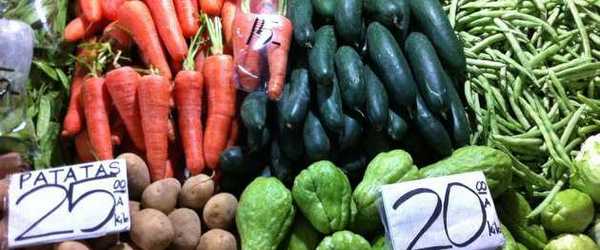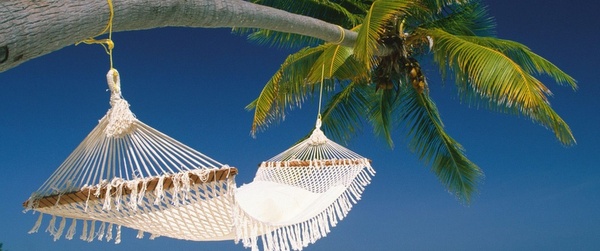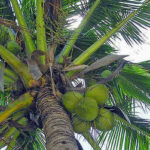
Being a foreigner retired and living in the Philippines, I know that many locals are curious about the things I do when out and about. Like most everyone these days, due to the state of the world economy, I like to spend the least amount of money as possible on my everyday living expenses but I refuse to cut down on the quality of my living.
I have talked to many expats over the years, who are living in the Philippines, and I learned that some are actually shy or even embarrassed to be seen shopping in one of the lively public markets! Some expats told me that they don’t want to be perceived as being a Cheap Charlie, as many locals think that all foreigners are rich. I agree that foreigners are sometimes stereotyped as only shopping in the supermarkets located in one of the shopping malls. When a foreigner is seen shopping in the much cheaper public markets, they could be perceived as being either “kuripot” or a poor foreigner. Kuripot is a Tagalog term which means the person never spends for pleasure and is a real tightwad. Many expats have house helpers and they will send them to the public market to buy fruits, vegetables, seafood and meat. Other expats will ask their wife to take care of the chore at the public market.
Cultural Immersion
Personally, I promote cultural immersion if one is going to live in the Philippines. I know a number of expats who spend most of their time in their home, located in a gated community with a security guard at the gate. They say they are happy and I am glad they are but for me, that is not the life I intend to live in the Philippines. I think they are missing out on life in this beautiful country by spending so many hours basically as a shut-in.
We enjoy shopping at the public markets because the food is not only cheaper than what is sold in supermarkets but it is also most often fresher. We are not only saving money but we are eating healthier as well! I really enjoy the lively atmosphere in the public markets where bargaining and haggling is expected. It is also nice establishing friendship with the vendors you buy from, as they are there every time you shop. There are a number of food stalls and kiosks in the public markets where you can take a break from the action of haggling over a kilo of fish or potatoes to enjoy a merienda snack and drinks. Most locals take an afternoon cup of coffee and some men enjoy an ice cold afternoon beer. Many expats warm up to this local custom. Give me an ice cold beer on a hot tropical day!
When I am shopping in one of the supermarkets located in one of the shopping malls, I sometimes notice locals looking in my shopping cart to see the things I am buying. I have actually seen some local shoppers pick up the same item I am buying, which is an imported food item, and throw it in their cart to give it a try later. Cultural sharing in action! I mainly shop at the mall supermarkets to buy things that cannot be purchased in the public markets. Mustard, Worcestershire sauce, horseradish, steak sauce and such western condiments are among the things I buy in the supermarkets.
It does not bother me at all if I am seen by some as El Cheapo for shopping in the public markets. I not only save money but I also have a lot of fun every time I shop!



The central point of your article harkens to the economy of buying some of your food in the “wet market” vice department store supermarkets. The implication is that cheap food is one of the bennies of living in the Philippines.
No matter that people eat Western or Filipino style, quality food is expensive in the Philippines. Do you not agree?
I do not agree, Ralph, that quality food is expensive in our area of the Philippines, which is the Western Visayas. Only one example among many, I bought a kilo of quality avocados yesterday at a public market for P25, which is about US 60 cents.
Some restaurants in our area are overpriced for Western dishes, while others about 1/5 the cost, yet their dishes are high quality. An imported Porterhouse steak is P280 or in the $6 price range at one steak house and the same imported steak is P1,200 or about $29 at a fancier steak house in our city. Same quality of food but a large difference in price.
Quality food is expensive in some areas of the Philippines but it can be manageable, depending on where one shops, what they buy and in which restaurants one dines.
A large group of American expats get together on a regular basis in our city in the Philippines and all of us agree 100% that we could not have the same quality of life *anywhere* in the USA as the high quality of life we enjoy in our area of the Philippines, with our monthly budgets.
Have a great day!
~ Gary ~
Although, I’ve purchased some veggies on my own, my wife most often doesn the haggling for fruits, veggies and fish…where possible. When it comes to hardware stores…I do it myself as it’s not her ‘bag’ and alot of them do not haggle anymore as they have established prices, which is fine for me. However if one buys in volume somewhat of a discount is warranted and requested by me. I usually dress low key…and I tell my wife, ‘don’t get to dressed up or they will think you have money’…and prices will be higher to you! My opinion!
Hi John,
Thank you for your comment. Knowing the prices of local produce has really helped me and those are posted once per week in one of the local newspapers. It will give the price range for each item, or at least the most commonly purchased ones. I also buy regularly from the same vendors at the public markets and we have a friendly relationship.
I agree about not dressing up too much when going to the public markets. I have also experienced when pulling up to some, but not all, roadside vendors, their prices are based on the type of vehicle one is driving. When going to our farm, south of Bacolod, we sometimes stop at roadside vendors to buy melons and/or angel wing clams, known as diwal, but we know the prices and we never pay more for anything than what it is worth to us.
Have a great day!
~ Gary ~
Gary, how long have you lived in the Philippines and at what age did you arrive? I’m 45 and tiring of the US rat race…
Hi David,
I moved to the Philippines permanently in 2009 at age 54. I tired of the rat race in the US at age 45 and moved to the Hong Kong-China Mainland area in the year 2000. So, I have enjoyed a wonderful life the past 13 years! I really enjoy our area of the Philippines much better than Hong Kong and PRC. It had been my goal to live in the Philippines permanently since I lived here one year beginning in 1986. I made it!
If you have more specific questions about the Philippines, I kindly suggest you join our forum, which is only a click away.
Have a great day!
~ Gary ~
Hi,
Three days since I first visited this site and three comments:) but there is a lot of useful information to read through. I like saving money as much as anyone, especially now my mind is gearing towards retirement. What I found appart from the savings of markets, is that grocery stores and malls are the same wherever you go. The price is the price very little bartering and human interaction. The smells, the people, the goings on are priceless at most local markets. I was told a few years back in the Philippines I wouldn’t be safe at a market alone and foriegners should stick to the air conditioned comfort of malls by hotel staff. But each morning a lengthy walk lead me to sticky rice breakfast, or munok, some of my fondest memerories are laughing with stall owners listening to “you buy, you buy” real friendly people. Cheaper prices and more fun. If safety is a concern I only took small notes and left camera and phone behind. I think sometimes (most) I paid a little more than something might be worth but found it cheaper than malls and the people serving more jovial. As I never saw any other Westerner tourists or expats at any of the markets in Cebu regions, I would like to know others experiences.
Thanks and best wishes Wayne
Hi Wayne,
Thank you for your very nice comments. Westerners shop in the public markets of Bacolod, as I have seen them a number of times when I was also shopping. It is perfectly safe, unless you are flashing wads of money, decked out in expensive jewelry and carrying eye-catching gadgets. Yes, you could lose them in a snatching incident or fall victim to a pick pocket. Smart thinking people would not do those things in their own country and doing them in the Philippines is also very risky! Carrying a sign that says “Rob me, I am flushed,” would make about as much sense in my eyes.
Once you develop a customer-vendor relationship in the markets, you are really good to go and most Filipino vendors are proud that you buy from them on a regular basis.
I also agree that public markets provide a festive and sometimes even carnival-like atmosphere, especially when new products arrive, such as asparagus or the large yellow and red bell peppers.
Have a great day!
~ Gary ~
I wear the term “kuripot” as a badge of honor. I always turn to the speaker and give them a hearty “Salamat.”